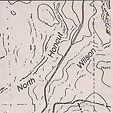All Articles
Legislative Update
December 1999 by Guest Writer
Summary
1. RS-2477 Roads: Closing Public Roads and Access. Any road that existed on public land at any time from 186(3 to 1976 is, today, an open public road unless that road was validly closed by Congress.
2. Administration Continues to Circumvent Congress on Land Use Programs. President Clinton's Land Legacy Initiative, the Biodiversity Treaty, and a multitude of land withdrawals and Wilderness Programs continue to be implemented by the administration without Congressional approval.
3. Budget Process Bogging Down in Congress. Although Congress has completed most annual Appropriations Bills, the all-important Interior Appropriations Bill (H.R.2466) is still not agreed upon.
4. Hidden Law—UN World Heritage Site Designations Kept Secret. The UN Operational Guidelines provide that countries" ... should refrain giving undue publicity."
Comments
1. RS-2477 Roads: Closing Public Roads and Access. The Clinton Administration has increased its efforts to prohibit access to public lands by closing public RS-2477 Roads without the approval of Congress. The Feds are using various methods and devices to close public roads, including: National Monument designations; U.S. Forest Service (USFS) Chief Dombeck's "Roadless Moratorium"; Interior Secretary Babbitt's proposed "Road Regulations"; new Federal land management plans created by President Clinton's Executive Orders such as ICBEMP in the Pacific Northwest and the American Heritage Rivers Initiative (ARRl) throughout the country; informal field actions by BLM and USFS Rangers; and other administrative activities and "Programs."
The U.S. Constitution and court cases are very clear that Congress alone, not the administration, has the power and authority to control our public lands. The "Property Clause," Article IV, §3 of the Constitution, expressly provides that:
"The Congress shall have Power to dispose of and make all needful Rules and Regulations respecting the Territory or other Property belonging to the United States ... "
This Constitutional power of Congress over the public land is sometimes granted or delegated in limited and specific instances to agencies, or to the people. One such specific grant by Congress to the citizens happened in 1866 when Congress granted to everyone, citizens and local governments, rights of way for the construction of public roads on public land. This specific Congressional grant was given by enacting RS-2477 (codified as Title 43 U.S. Code §932) as a part of the 1866 Mining Law, and RS-2477 applied to all U.S. public lands. RS-2477 is one simple sentence, as follows:
"The right of way for the construction of highways over lands, not reserved for public uses, is hereby granted."
RS-2477 was in effect for 110 years, being repealed by the Federal Land Policy and Management Act of 1976 (FLPMA)—so, any public road existing at any time from 1866 to 1976 was, and is today, an open public road, unless and until validly closed by Congress.
In repealing RS-2477, FLPMA specifically provided that no existing roads or rights-of-way were terminated:
"Nothing in the Act [FLPMA] ... shall have the effect of terminating any right-of-way or right-of-use heretofore issued, granted or permitted ... Nothing in [FLPMA] ... shall be construed as terminating any valid lease, permit, patent, right-of-way, or other land use existing on the date of approval of this act [1976]."
Disputes have arisen as to the exact meaning of the key words in RS-2477-"construction", "highways" and "right-of-way." The ELM and USFS have continuously sought to weaken RS-2477 Roads via lawsuits and by their own administrative action.
In 1988, the U.S. 10th Circuit Court of Appeals ruled that RS-2477 Rights of Way were still as valid as they were in 1976 when FLPMA withdrew the grant; and the court ruled that the FLPMA withdrawal applies only to new roads after 1976.
In 1996, the ELM filed a lawsuit in Utah seeking to stop road maintenance on RS-2477 roads by any county without advance written permission of the ELM. In ruling on the Feds' motion for a partial summary judgement, Chief Judge David Sam denied the ELM's motion, and held that RS-2477 Roads are "self-executing and became effective when they were established." Judge Sam also held that RS-2477 Roads do not need "ratification from the federal government," and that RS-2477 Roads are "preserved as they existed in 1976." Judge Sam further held that " ... the scope of an RS-2477 right-of-way is defined by the use of state law"; and he held that the ELM had failed to show, that the county road work was beyond the scope of the RS-2477 right-of-way.
After the Utah RS-2477 Road advocates decisively won this first court skirmish in the current ongoing battIe over local (county) control of the Utah public roads, the Feds then tried the tactic of "persuading" Utah counties to voluntarily give up their RS-2477 rights-of-way and to apply for "BLM Permits" for the public roads—but, the counties refused. This means that this Utah lawsuit will continue.
In most disputes or analyses involving the interpretation of a statute, the important question arises: "What was the legislative intent of the Congress in passing this statue?" The statutes in this case are, of course, RS-2477 itself, and FLPMA repealing RS-2477.
The United States is most fortunate to have in the record a letter written in 1977, clearly setting out that the intent of Congress in repealing RS-2477 was to preserve the existing public roads. This "Legislative Intent" letter was written by then-Representative Jim Santini (D-NV), and is signed by 25 Representatives, including most of the House Committee on Interior and Insular Affairs, the committee that had the responsibility for reviewing FLPMA and the repeal of RS-2477. For obvious reasons Secretary Babbitt and the agencies are ignoring this 1977 Committee letter.
2. Administration Continues to Circumvent Congress on Land Use Programs. The Clinton administration is proceeding with its lockup of Public Lands. Several of the land wilderness/lockup programs are: Clinton's Land Legacy Initiative, implementation of the unratified Biodiversity Treaty, Clinton's plan to stop all commercial development and road building on 40 million acres of National Forests; mining withdrawals on 500,0000 acres of the Shivwits Plateau in Arizona; 165,000 acres at Anasazi in Colorado; 429,000 acres at Rocky Mountain Front in Montana; 619,000 acres at Steens Mountain in Oregon; 10,000 acres at Indian Pass in California, 70,000 acres at San Francisco Peaks in Arizona; 112,000 acres at Perry Mesa in Arizona; 41,000 acres in the San Bernardino Mountains in California; and 1.4-million acres at Hart Mountain in Oregon.
These withdrawals appear to be under the auspices of President Clinton's Executive Order EO-13007. The technique is to declare a mineral and activities moratorium, with a simultaneous proposal for designation as an Area of Critical Environmental Concern (ACEC). An ACEC is administrative, done without involving Congress. The intent is to hold the land, while other final means of more permanent restrictions are being sought.
3. Budget Process Bogging Down in Congress. An unusually rancorous atmosphere pervades Congress in the budget process this year.
Reports and rumors are that Congress may be in session for several weeks in December to complete the necessary task of passing the last few Appropriations Bills. The Bill appearing to give the Congress the most trouble is the Interior Appropriations Bill (H.R.2466), with all of its amendments and riders.
4. Hidden Law-UN World Heritage Site Designations Kept Secret. The World Heritage Treaty was ratified by the U.S. Senate in 1973 and under Article VI of our Constitution, this treaty is the "Supreme Law of the Land; and Judges in every State shall be bound thereby."
The World Heritage Treaty 1994 Operational Guidelines paragraph 14, states: "To avoid possible embarrassment ... [countries] should refrain from giving undue publicity to the fact that a property has been nominated ... " for designation as a UN World Heritage Site or as a Biosphere Reserve.
The 1995 Seville Agreement of the United National Educational and Scientific Organization (UNECSO) authorizes Non-Governmental Organizations (NGOs) to be empowered to act as nonaccountable private lobbying organizations. The 1995 UN Agreement provides that "national or local NGOs could be appropriate substitutes" for national or local governments in identifying and designating Biosphere Reserves and World Heritage Sites. This provision would empower nonaccountable private lobbying organizations, NGOs, such as the Sierra Club and the Wilderness Society, to substitute for accountable local and national governments.
As the American public learns of these UN Programs and of the "secrecy" provisions, resistance has been steadily increasing. For example, in June 1997 grassroots groups in Kentucky caused their legislature to pass a unanimous Resolution condemning the UN "Man and the Biosphere" (MAB) Programs under the 1973 World Heritage Treaty, stating that:
" ... Kentucky is unalterably opposed to the inclusion of any land within the borders of the Commonwealth within the purview of the Biodiversity Treaty or any biodiversity program without the express consent of the General Assembly of the Commonwealth of Kentucky, as provided by the Constitution of the U.S. and the Constitution of Kentucky."
State legislatures of 22 States have passed resolutions or legislation against implementing the Kyoto Protocol (Global Warming Treaty).
The proposed American Land Sovereignty Protection Act would require Congressional approval of any UN-sponsored designations as World Heritage Sites or Biosphere Reserves on United States land. The House version (H.R.883) has passed, but its Senate companion (S.510) is languishing. Similar bills were proposed in the last three Congressional Sessions, but failed to be enacted into law. In 1998, the American Lands Sovereignty Act (old H.R.901) passed in the House, but failed to survive the Omnibus Budget Bills in the last Congress.
Conclusion
The budget and Appropriations Bills are occupying most of Congress' time. There were reports that Congress may be in session for several weeks in December. The concern over the last minute rush is more than a matter of time and convenience. Much of the restrictive Congressional legislation has come during the last several months of Congressional Sessions—such as S.21, the "California Desert Closure Act" and the $100/year mining claim "Maintenance Fee."Keep your Senators and Representatives fully apprised of your views by telephone, mail, fax, email, and by personal visits to their local offices. This awareness is particularly important during the end of session rush to get home for Christmas. There are several issues of major significance that rarely make the headlines including restrictions on Executive Orders, sovereignty rights, private land acquisition by the Feds, the ESA, and the various Treaties and UN "Agreements" that are pending in Congress and in the Administration.
Members of Congress are interested in your views—particularly with the upcoming election year. Send copies of your letters and faxes to your State and local officials, and your local newspapers.
Direct your letters, calls, and faxes to both the local and Washington offices of your members of Congress. Their address and telephone numbers are as follows:
Senator
U.S. Senate
Washington, D.C. 20510
(202) 224-3121
Representative
U.S. House of Representatives
Washington, D.C. 20515
(202) 225-3121
EDITOR'S NOTE: We are sad to inform you that Mr. Sanregret passed away November 9th. See OVER THE DIVIDE, page 2.

Looking Back
Excerpts from California Mining Journal, our original title, published 50 years ago this month.
Excavator Testing Wet Placer Ground
The excavator or backhoe has become the tool of choice for testing placer ground. These machines are the best way to explore and sample a placer deposit if the ground is not too wet or frozen and bedrock is not beyond the reach of the machine.
A Few Pointers About Cracks and Crevices
 Because these crevices catch and hold gold so well, it's worthwhile to learn how they form, which ones are good for catching gold and which ones are not.
Because these crevices catch and hold gold so well, it's worthwhile to learn how they form, which ones are good for catching gold and which ones are not.
Gold Placers in Italy
 Gold is a fairly widespread mineral in the Italian Alps and in the Northern Apennines. It is found both in primary mineralization and in past and recent floods.
Gold is a fairly widespread mineral in the Italian Alps and in the Northern Apennines. It is found both in primary mineralization and in past and recent floods.
Picks & Pans: Gold Mining on Joie Osgood Ranch
 Butte County, California—On January 29, 1978, Peter and I received permission from Joie Osgood to pan and look for gold on her property. The 3800 acre property was located about four miles northeast of Honcut, Butte County, California.
Butte County, California—On January 29, 1978, Peter and I received permission from Joie Osgood to pan and look for gold on her property. The 3800 acre property was located about four miles northeast of Honcut, Butte County, California.
Our Readers Say
• "A better working relationship needs to be established..."
Subscription Required:
The Bawl Mill
• Over the Divide
• Our Readers Say
• Desert Phone Trashed
• ICMJ Elected Prospecting Magazine of 1999
• Advertising Manager Leaving ICMJ
• Guest Editorial—California "Special" Dredge Permits in Jeopardy
• The Search Continues
• Guest Editorial: U.S. Government—Like Nobody's Business
• Circulation and Collections Manager Leaving ICMJ
• Company Notes
• House Chair Requests Records on Forest Decision
• BLM Wants to Withdraw South Pass Public Land
• Silverton Preserving Lofty Symbol of Mining Era
• Hijackers Make Off With 660 Pounds of Gold
• Prospecting With a Magnetometer
• 1999 Tables of Content
• Lighting the Way Underground 1860-1940s
• Millie's Tailings
• Picks & Pans: Crevicing & Sniping for Placer Gold
• Looking Back
• Gold in Sonora
• Forest Service Boss Quits in Bull Trout Flap
• Melman on Gold & Silver
• European Gold Miners Seek Clarification Letter
• Mining Stock Quotes and Mineral & Metal Prices
• Squeezing Diamond Into Graphite
Free:







